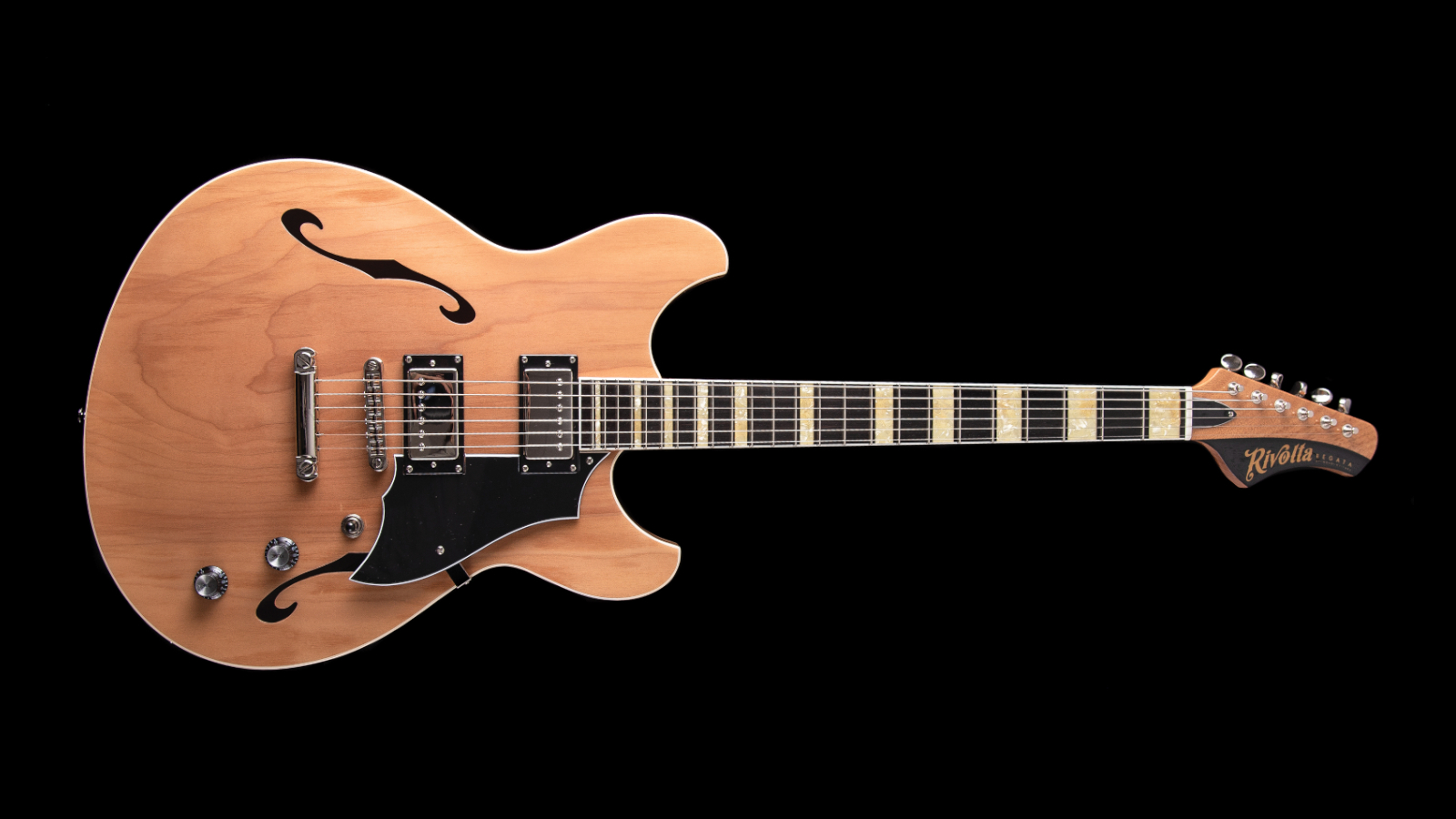GuitarPlayer Verdict
The Rivolta Regata VII presents a sturdy and reliable instrument right out of the gigbag. Definitely one to consider for players seeking a twist on the ES-335 theme.
Pros
- +
Hip styling
- +
Good build quality
- +
Easy playability
- +
Well-priced alternative to the ES-335-inspired norm
Cons
- -
A little pinging from hitching in the plain-string nut slots, but that’s easily remedied
You can trust Guitar Player.
Marrying a number of popular styles, the new Rivolta Regata VII will present some familiar visual reference points for many players, not least of which is clear evidence of the design prowess of Dennis Fano, formerly of his own eponymous brand and currently head of the popular Novo Guitars.
Representing a more affordable offshore offshoot for Fano, Rivolta guitars are manufactured at the highly regarded Mirr Music Co. factory in South Korea, which also makes guitars for Reverend, Danelectro, Baum and other respected brands with western design roots.
Those who know Fano and Novo electric guitars will recognize a kinship between the offset-waist, semi-acoustic body of the Regata VII and, for example, the shape of Novo’s solidbody Serus J, whose sharp, asymmetrical cutaway horns are faintly echoed here, with some variations in the lines.
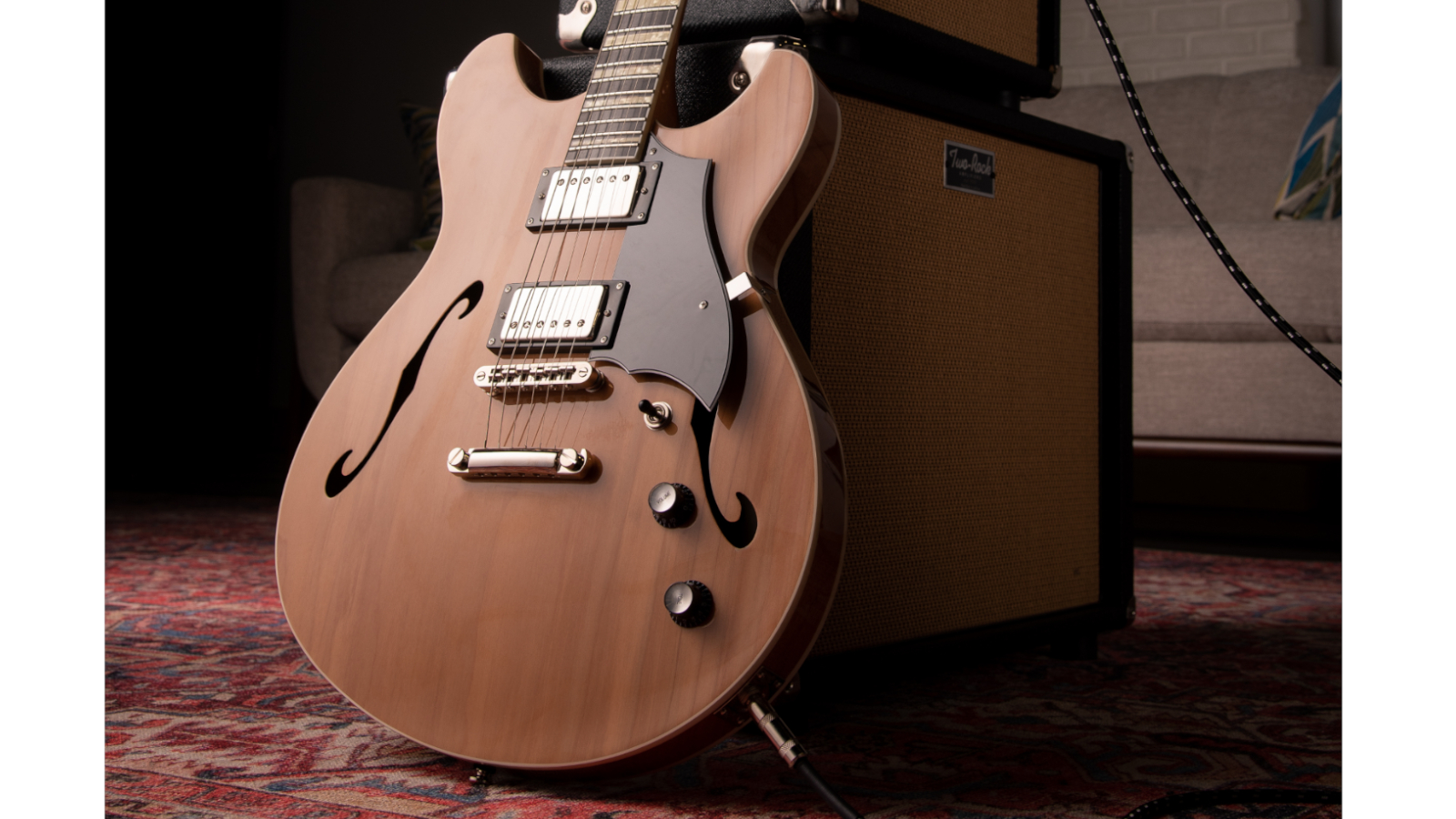
We’ve seen the nifty two-tiered headstock on much of Fano’s work in the past, too, along with the fretboard’s ’50s-era Gretsch-like full-width blocks. Whether or not you find these elements appealing – and we do – they speak to the advanced aesthetic sensibilities of a guitar maker firing on all cylinders.
The Regata VII’s own retro touchstones are also found in the Fender Starcaster of the late ’70s, which applied a more rounded-horned, offset-waist design to the CBS-era maker’s attempt to knock the ES-335 off the semi-acoustic podium.
Like the Gibson semis that will inevitably be mentioned in its proximity, the Regata VII has a solid block running from tailpin to neck joint to bolster its thinline rigidity, but in this case it’s mahogany rather than the traditional maple.
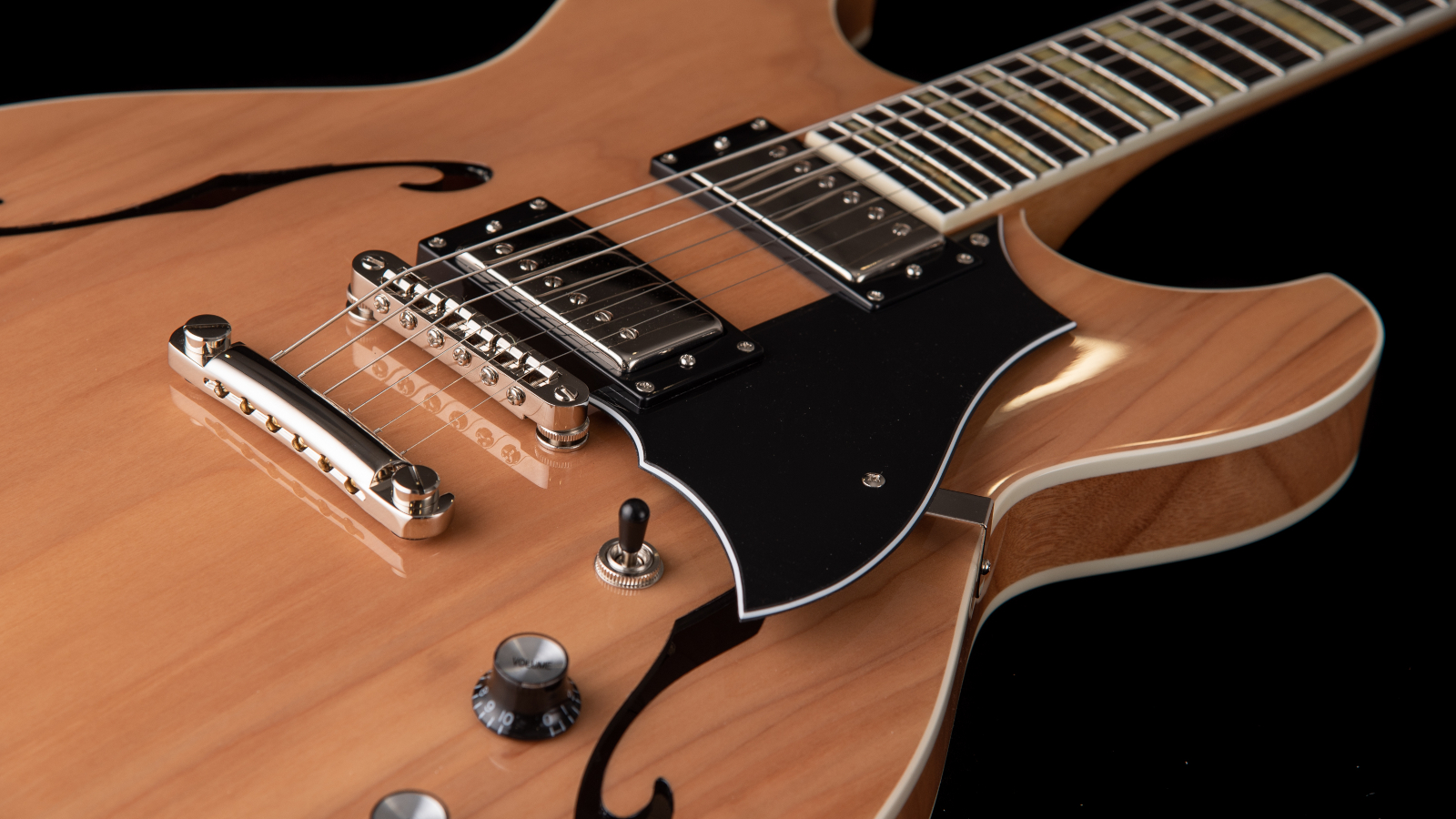
The gently arched top and back are indeed made of laminated maple, but the guitar’s sides – which also constitute a more rigid overall frame than the usual bent laminated-maple strips – are carved from mahogany, as is the glued-in neck.
All the latest guitar news, interviews, lessons, reviews, deals and more, direct to your inbox!
A bound ebony fingerboard tops the timber selection. Our test guitar is dressed in a vintage-natural finish that Rivolta calls Acero Glow (a play on Rickenbacker’s natural Maple Glo finish, using the genus name for this wood), which makes for an appealingly dressed package.
The hardware includes a nickel-plated Nashville style Tune-o-matic bridge and wraparound tailpiece, and six-in-line Kluson Deluxe tuners.
The Regata VII strays from the norm just a little with a 25-inch scale length, which helps to squeeze in 24 jumbo frets, all very nicely dressed and polished on this example.
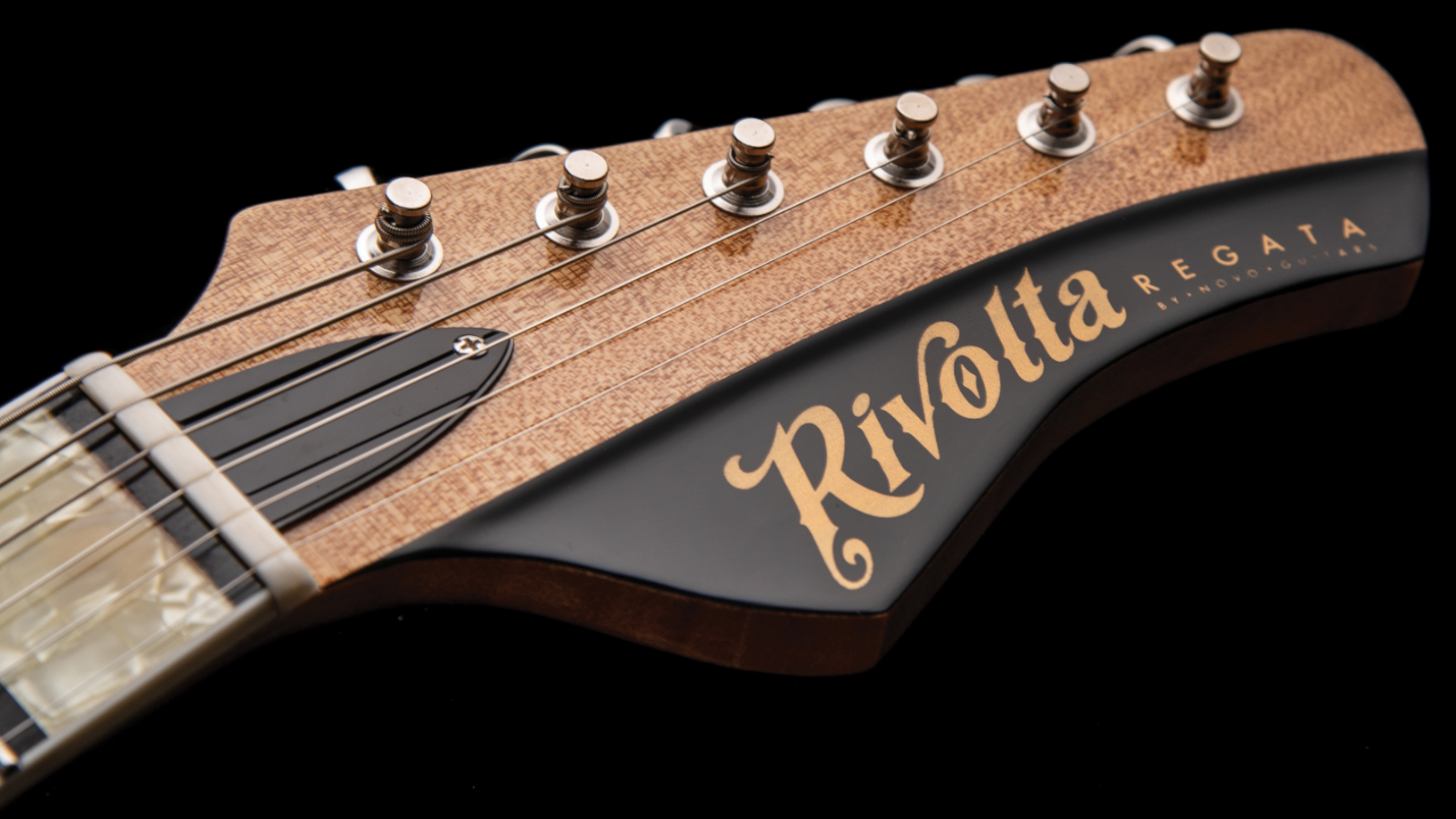
The nut width of 1 11/16 inches and the 12-inch fingerboard radius hit right at the G-style norm, however, and the entire playing feel still best equates to a mid ’60s ES thinline model. The neck shape is what Rivolta calls its “C+” profile, an early ’60s carve that’s given just a little more girth to avoid the flat-backed feel that those can sometimes have, and it certainly sits well in the hand.
The pickups on this model are a pair of Rivolta’s own Brevetto humbuckers, made with Alnico V magnets and traditional 42-AWG coil wire. They measure 7.66 k-ohms in the neck position and 12.55 k-ohms in the bridge. Rivolta calls them “PAF inspired,” though the bridge pickup is far more heavily wound than any such unit from the late ’50s or early ’60s.
That said, many makers – and players – in the Regata’s target market are looking for extra sting from the bridge position, and this humbucker should deliver. They’re wired through a three-way selector and master volume and tone controls.
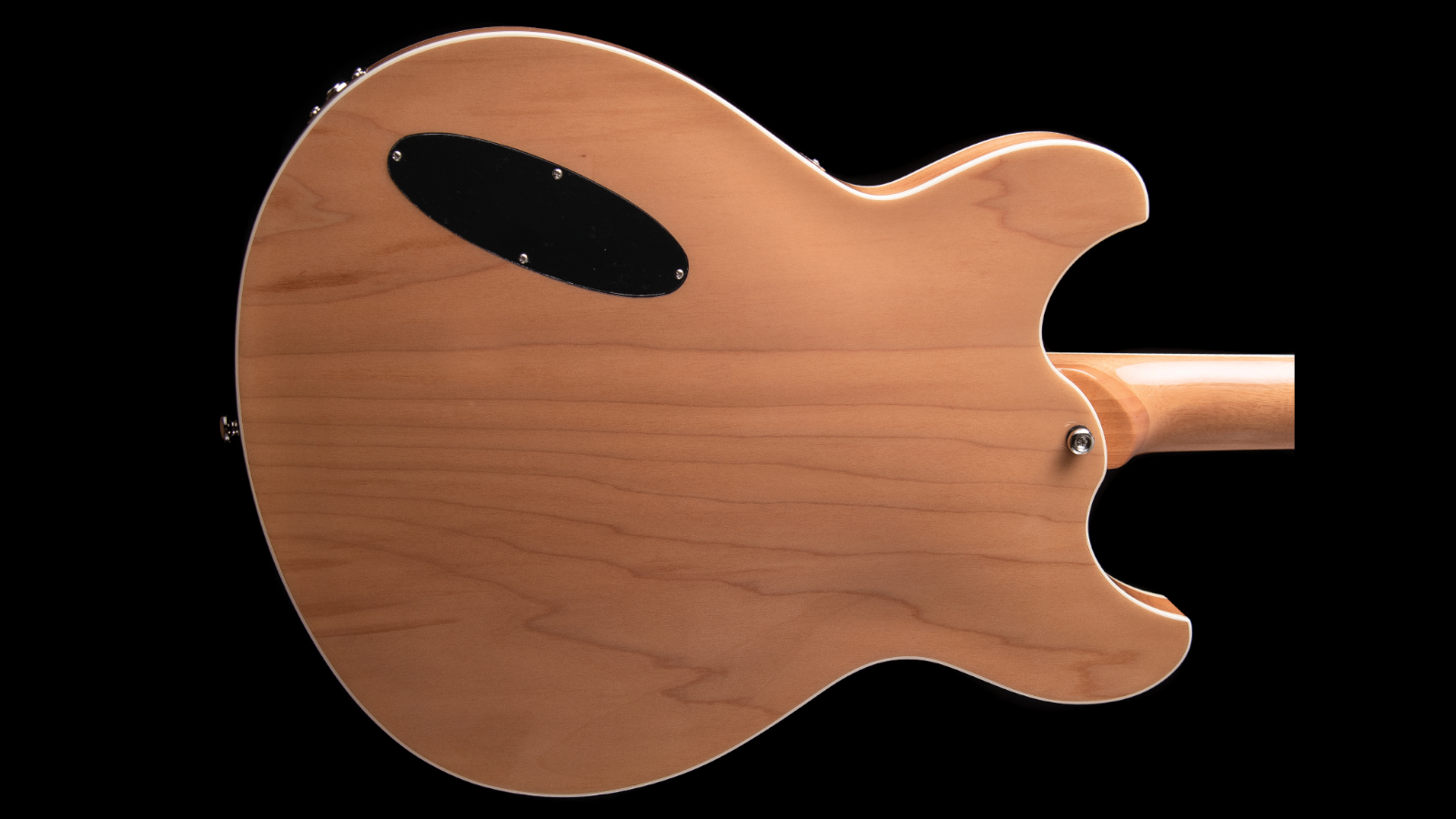
All in all, the Regata VII’s build quality is impressive, and the fit, finish and setup present a sturdy and reliable instrument right out of the Rivolta gigbag.
We got a little pinging at the nut slots for the plain strings when twisting the tuners or, occasionally, bending hard, but that should be easily remedied with some lubricant or a slight pass or two of the slot file. Otherwise, the guitar played easily and smoothly all up the neck and exhibited a loud, lively sound unplugged, with a lot of woody resonance overall and a piano-like girth in the wound strings.
Tested through a Friedman Small Box head and 1x12 cab, a Fender Deluxe Reverb amp and a selection of pedals, the Rivolta Regata VII proved to be an appealing and versatile performer, but one that is certainly predisposed toward the rocky side of indie, alternative and roots styles.
The neck pickup sounds particularly sweet, with a tasty bit of compression at the front of the pick attack and good body and clarity, atop the underpinning of warmth you would expect from this position.
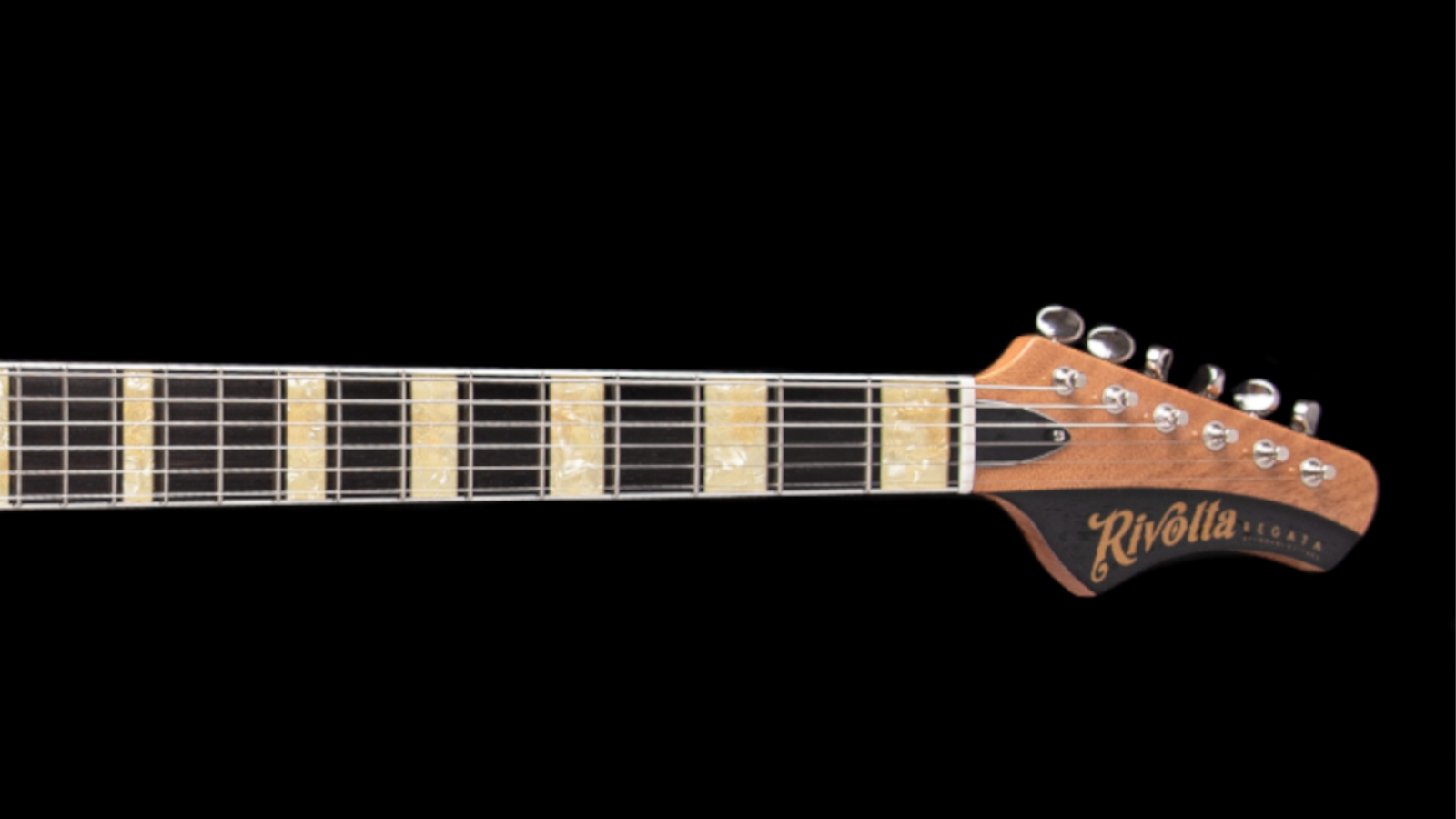
The bridge pickup is definitely predisposed to crunch and wail, and it pushes an edge-of-break-up amp into some bluesy or classic-rock grind. We found that it really excels in a high-gain setting, where it enables bags of saturation as well as singing lead work.
The tone cleans up by rolling back the guitar’s volume control, but that also darkens the tone, so the best road to acceptable jangle and chime comes via the middle position, which delivers very usable sparkly and slightly scooped sounds that work great for lighter chords and arpeggios.
The Regata VII is quite feedback resistant for a semi-hollow, but you can intentionally induce a little at higher volumes or with an overdrive pedal engaged, to aid your sustain or atmospherics as desired.
All told, between the hip “familiar-alternative” styling and the confident, versatile performance, the Rivolta Regata VII is definitely one to consider for players seeking a twist on the ES-335 theme, and a fun ride by any measure.
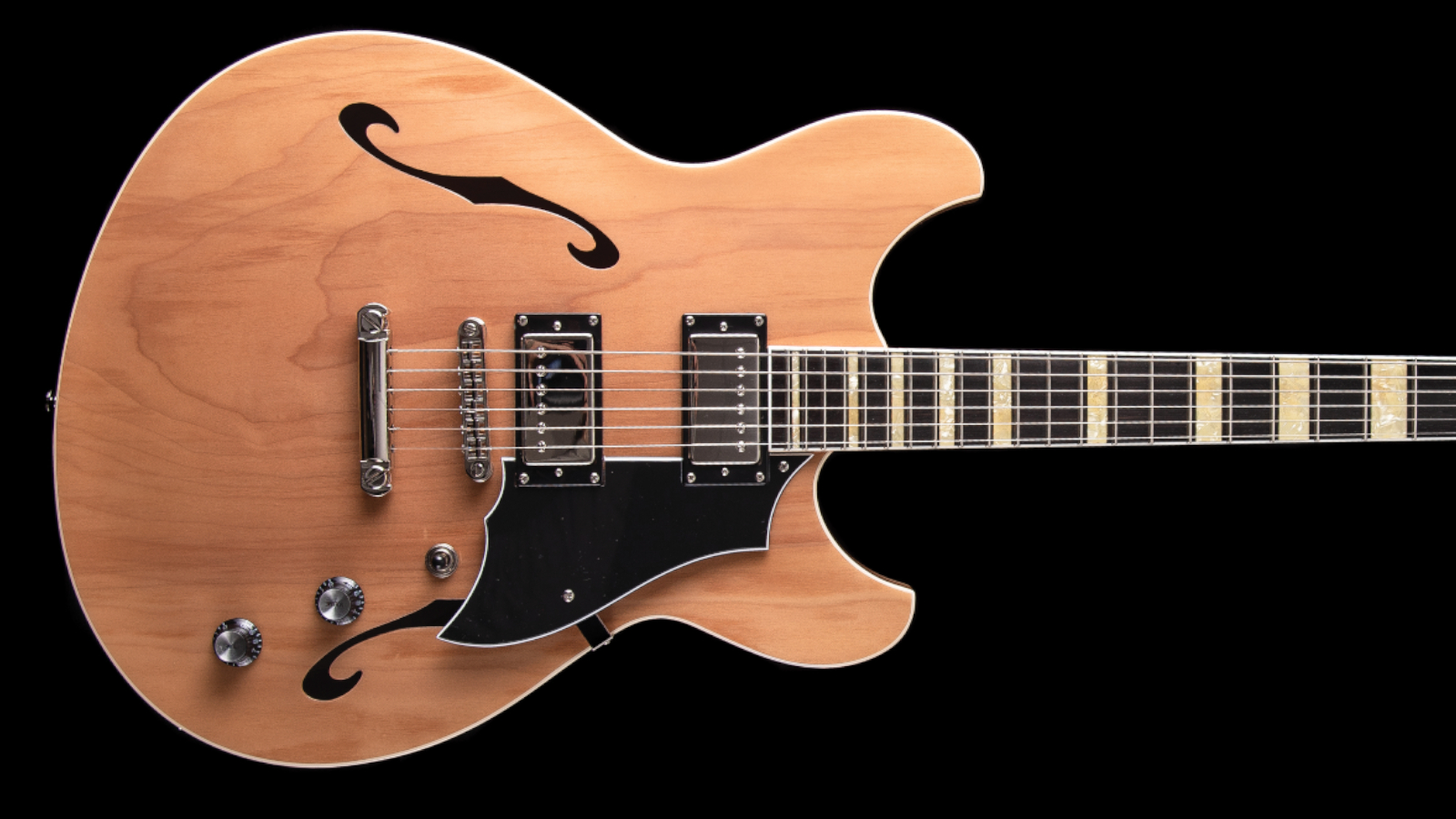
SPECIFICATIONS:
- NUT: Bone, 1 11/16” wide
- NECK: Mahogany, 25” scale length, slim-leaning rounded “C+” profile
- FRETBOARD: Ebony, 12” radius
- FRETS: 24 medium-jumbo
- TUNERS: Wilkinson Deluxe Brand (Kluson style)
- BODY: Laminated maple top and back with mahogany sides and solid mahogany center block
- BRIDGE: Nashville-style Tune-o-matic bridge and stopbar tailpiece
- PICKUP: Two Rivolta Brevetto humbuckers
- CONTROLS: Volume, tone, three-way switch
- FACTORY STRINGS: D’Addario OEM .010–.046 (non-colored ball ends)
- WEIGHT: 7.8 lbs (as tested)
- BUILT: Korea
Visit the Rivolta website for more information.
Dave Hunter is a writer and consulting editor for Guitar Player magazine. His prolific output as author includes Fender 75 Years, The Guitar Amp Handbook, The British Amp Invasion, Ultimate Star Guitars, Guitar Effects Pedals, The Guitar Pickup Handbook, The Fender Telecaster and several other titles. Hunter is a former editor of The Guitar Magazine (UK), and a contributor to Vintage Guitar, Premier Guitar, The Connoisseur and other publications. A contributing essayist to the United States Library of Congress National Recording Preservation Board’s Permanent Archive, he lives in Kittery, ME, with his wife and their two children and fronts the bands A Different Engine and The Stereo Field.
